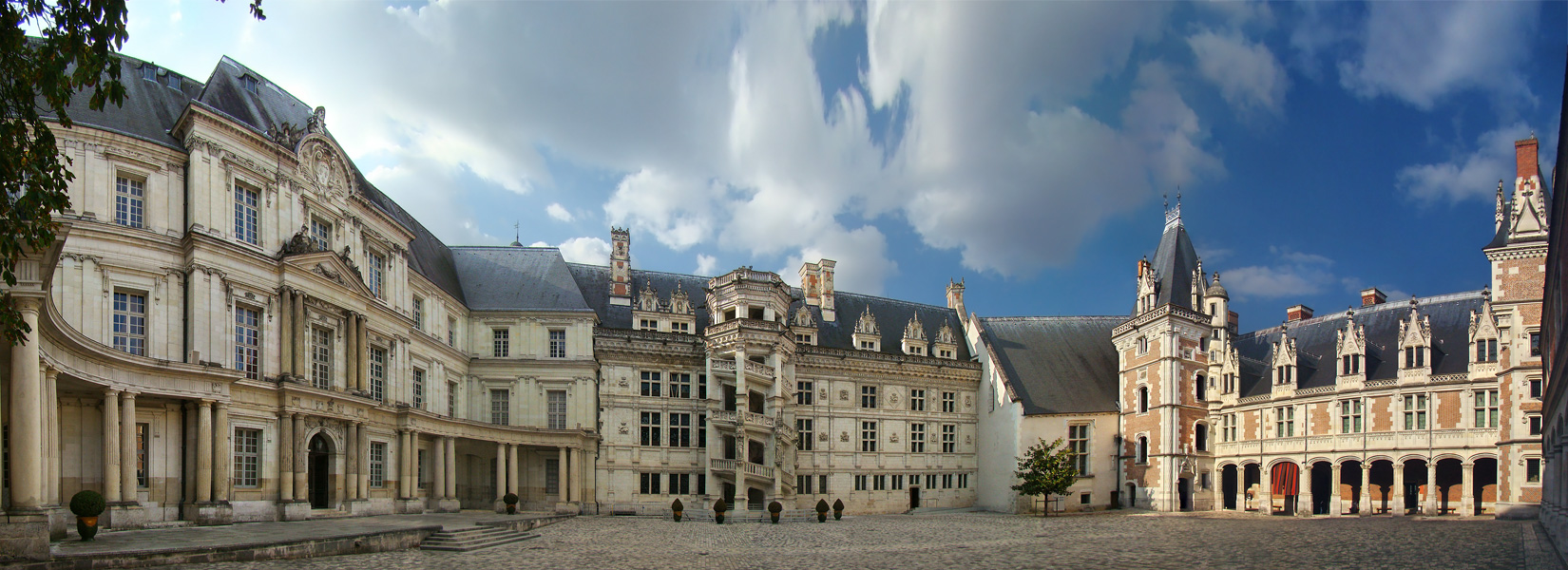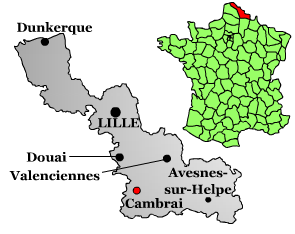|
Andrew Michael Ramsay
Andrew Michael Ramsay (9 July 16866 May 1743), commonly called the Chevalier Ramsay, was a Scottish-born writer who lived most of his adult life in France. He was a Baronet in the Jacobite Peerage. Ramsay was born in Ayr, Scotland, the son of a baker. In 1710 he visited François Fénelon in the Netherlands, and in his attraction to quietism converted to Roman Catholicism. He remained in France until 1724 writing politico-theological treatises. One of these was dedicated to the Jacobite claimant to the English and Scottish thrones, James Francis Edward Stuart. In January 1724, Ramsay was sent to Rome as tutor to James' two sons, Charles Edward and Henry. But his appointment was short-lived; Ramsay was associated with the court party of John Erskine, Duke of Mar, who fell from favour that year. By November 1724 Ramsay was back in Paris. Ramsay was in England in 1730, and received an honorary degree from the University of Oxford. The claim was nominally his discipleship to Fà ... [...More Info...] [...Related Items...] OR: [Wikipedia] [Google] [Baidu] |
Scotland
Scotland (, ) is a country that is part of the United Kingdom. Covering the northern third of the island of Great Britain, mainland Scotland has a border with England to the southeast and is otherwise surrounded by the Atlantic Ocean to the north and west, the North Sea to the northeast and east, and the Irish Sea to the south. It also contains more than 790 islands, principally in the archipelagos of the Hebrides and the Northern Isles. Most of the population, including the capital Edinburgh, is concentrated in the Central Belt—the plain between the Scottish Highlands and the Southern Uplands—in the Scottish Lowlands. Scotland is divided into 32 administrative subdivisions or local authorities, known as council areas. Glasgow City is the largest council area in terms of population, with Highland being the largest in terms of area. Limited self-governing power, covering matters such as education, social services and roads and transportation, is devolved from the Scott ... [...More Info...] [...Related Items...] OR: [Wikipedia] [Google] [Baidu] |
Rosehearty
Rosehearty ( gd, Ros Abhartaich) is a settlement on the Moray Firth coast, four miles west of the town Fraserburgh, in the historical county of Aberdeenshire in Scotland. The burgh has a population of approximately 1,300 with about 25 per cent of pensionable age. Etymology The name ''Rosehearty'' was documented in 1508 as Rossawarty and is derived from Gaelic ''ros'', meaning "cape, headland", and the personal name ''Abhartach''. History The settlement which is now Rosehearty was founded by a group of shipwrecked Danes in the 14th century.''Ordnance Gazetteer of Scotland: A Graphic and Accurate Description of Every Place in Scotland'' Frances Hindes Groome (1901), p. 1383 In 1424 the Fraser family built |
Bonnie Prince Charlie
Bonnie, is a Scottish given name and is sometimes used as a descriptive reference, as in the Scottish folk song, My Bonnie Lies over the Ocean. It comes from the Scots language word "bonnie" (pretty, attractive), or the French bonne (good). That is in turn derived from the Latin word "bonus" (good). The name can also be used as a pet form of Bonita. People named Bonnie Women * Bonnie Bartlett (born 1929), American actress * Bonnie Bedelia (born 1948), American actress * Bonnie Bernstein (born 1970), American sportscaster * Bonnie Bianco (born 1963), American singer and actress * Bonny Blair (born 1964), retired American speedskater * Bonnie Bramlett (born 1944), American singer and sometime actress * Bonnie Crombie (born 1960), Canadian politician, formerly Member of the Canadian Parliament * Bonnie Curtis (born 1966), American film producer * Bonnie Dasse (born 1959), retired American track and field athlete * Bonnie Dobson (born 1940), Canadian folk music songwriter, singer, ... [...More Info...] [...Related Items...] OR: [Wikipedia] [Google] [Baidu] |
Order Of St
Order, ORDER or Orders may refer to: * Categorization, the process in which ideas and objects are recognized, differentiated, and understood * Heterarchy, a system of organization wherein the elements have the potential to be ranked a number of different ways * Hierarchy, an arrangement of items that are represented as being "above", "below", or "at the same level as" one another * an action or inaction that must be obeyed, mandated by someone in authority People * Orders (surname) Arts, entertainment, and media * ''Order'' (album), a 2009 album by Maroon * "Order", a 2016 song from ''Brand New Maid'' by Band-Maid * ''Orders'' (1974 film), a 1974 film by Michel Brault * ''Orders'', a 2010 film by Brian Christopher * ''Orders'', a 2017 film by Eric Marsh and Andrew Stasiulis * ''Jed & Order'', a 2022 film by Jedman Business * Blanket order, purchase order to allow multiple delivery dates over a period of time * Money order or postal order, a financial instrument usually intend ... [...More Info...] [...Related Items...] OR: [Wikipedia] [Google] [Baidu] |
Louis XV
Louis XV (15 February 1710 – 10 May 1774), known as Louis the Beloved (french: le Bien-Aimé), was King of France from 1 September 1715 until his death in 1774. He succeeded his great-grandfather Louis XIV at the age of five. Until he reached maturity (then defined as his 13th birthday) on 15 February 1723, the kingdom was ruled by his grand-uncle Philippe II, Duke of Orléans, as Regent of France. Cardinal Fleury was chief minister from 1726 until his death in 1743, at which time the king took sole control of the kingdom. His reign of almost 59 years (from 1715 to 1774) was the second longest in the history of France, exceeded only by his predecessor, Louis XIV, who had ruled for 72 years (from 1643 to 1715). In 1748, Louis returned the Austrian Netherlands, won at the Battle of Fontenoy of 1745. He ceded New France in North America to Great Britain and Spain at the conclusion of the disastrous Seven Years' War in 1763. He incorporated the territories of the Duchy of Lorr ... [...More Info...] [...Related Items...] OR: [Wikipedia] [Google] [Baidu] |
Philippe II, Duke Of Orléans
Philippe II, Duke of OrlĂ©ans (Philippe Charles; 2 August 1674 – 2 December 1723), was a French prince, soldier, and statesman who served as Regent of the Kingdom of France from 1715 to 1723. He is referred to in French as ''le RĂ©gent''. He was the son of Monsieur Philippe I, Duke of Orleans, and Madame Elisabeth Charlotte, Duchess of Orleans. Born at his father's palace at Saint-Cloud, he was known from birth by the title of Duke of Chartres. In 1692, Philippe married his first cousin Françoise Marie de Bourbon, the youngest legitimised daughter (''lĂ©gitimĂ©e de France'') of King Louis XIV and Madame de Montespan. Named regent of France during the minority of Louis XV, his great-nephew and first cousin twice removed, the period of his ''de facto'' rule was known as the Regency (french: la RĂ©gence) (1715–1723). The Regency came to an end in February 1723, and the Duke of OrlĂ©ans died at Versailles in December. Parents In March 1661, Monsieur Phil ... [...More Info...] [...Related Items...] OR: [Wikipedia] [Google] [Baidu] |
Cardinal Fleury
Cardinal or The Cardinal may refer to: Animals * Cardinal (bird) or Cardinalidae, a family of North and South American birds **''Cardinalis'', genus of cardinal in the family Cardinalidae **''Cardinalis cardinalis'', or northern cardinal, the common cardinal of eastern North America * ''Argynnis pandora'', a species of butterfly * Cardinal tetra, a freshwater fish * ''Paroaria'', a South American genus of birds, called red-headed cardinals or cardinal-tanagers Businesses * Cardinal Brewery, a brewery founded in 1788 by François Piller, located in Fribourg, Switzerland * Cardinal Health, a health care services company Christianity * Cardinal (Catholic Church), a senior official of the Catholic Church **Member of the College of Cardinals * Cardinal (Church of England), either of two members of the College of Minor Canons of St. Paul's Cathedral Entertainment Films * ''Cardinals'' (film), a 2017 Canadian film * ''The Cardinal'' (1936 film), a British historical drama * '' ... [...More Info...] [...Related Items...] OR: [Wikipedia] [Google] [Baidu] |
Louis XIV
, house = Bourbon , father = Louis XIII , mother = Anne of Austria , birth_date = , birth_place = Château de Saint-Germain-en-Laye, Saint-Germain-en-Laye, France , death_date = , death_place = Palace of Versailles, Versailles, France , burial_date = 9 September 1715 , burial_place = Basilica of Saint-Denis , religion = Catholicism (Gallican Rite) , signature = Louis XIV Signature.svg Louis XIV (Louis Dieudonné; 5 September 16381 September 1715), also known as Louis the Great () or the Sun King (), was King of France from 14 May 1643 until his death in 1715. His reign of 72 years and 110 days is the longest of any sovereign in history whose date is verifiable. Although Louis XIV's France was emblematic of the age of absolutism in Europe, the King surrounded himself with a variety of significant political, military, and cultural figures, such as Bossuet, Colbert, Le Brun, Le Nôtre, Lully, Mazarin, Molière, Racine, Turenne, ... [...More Info...] [...Related Items...] OR: [Wikipedia] [Google] [Baidu] |
Blois
Blois ( ; ) is a commune and the capital city of Loir-et-Cher department, in Centre-Val de Loire, France, on the banks of the lower Loire river between Orléans and Tours. With 45,898 inhabitants by 2019, Blois is the most populated city of the department, and the 4th of the region. Historically, the city was the capital of the county of Blois, created on 832 until its integration into the Royal domain in 1498, when Count Louis II of Orléans became King Louis XII of France. During the Renaissance, Blois was the official residence of the King of France. History Pre-history Since 2013, excavations have been conducted by French National Institute of Preventive Archaeological Research (''INRAP'' in French) in Vienne where they found evidence of "one or several camps of late Prehistory hunter-gatherers, who were also fishermen since fishing traps were found there.. ..They were ancestors of the famous Neolithic farmer-herders, who were present in current France around 6,000 BC ... [...More Info...] [...Related Items...] OR: [Wikipedia] [Google] [Baidu] |
Cambrai
Cambrai (, ; pcd, Kimbré; nl, Kamerijk), formerly Cambray and historically in English Camerick or Camericke, is a city in the Nord (French department), Nord Departments of France, department and in the Hauts-de-France Regions of France, region of France on the Scheldt river, which is known locally as the Escaut river. A Subprefectures in France, sub-prefecture of the department, Cambrai is a town which had 32,501 inhabitants in 2018. It is in the heart of the urban unit of Cambrai with 46,772 inhabitants. Its functional area (France), functional area, a more extensive range, included 94,576 inhabitants in 2018.Comparateur de territoire: Aire d'attraction des villes 2020 de Cambra ... [...More Info...] [...Related Items...] OR: [Wikipedia] [Google] [Baidu] |
Jeanne Marie Bouvier De La Motte Guyon
Jeanne-Marie Bouvier de la Motte-Guyon (Commonly known as Madame Guyon, ; 13 April 1648 – 9 June 1717) was a French mystic accused of advocating Quietism, which was considered heretical by the Roman Catholic Church. Madame Guyon was imprisoned from 1695 to 1703 after publishing the book ''A Short and Very Easy Method of Prayer''. Personal life Guyon was the daughter of ''Claude Bouvier'', a procurator of the tribunal of Montargis, 110 kilometers south of Paris and 70 kilometers east of Orléans. She was sickly in her childhood, and her education was neglected. Her childhood was spent between the convent, and the home of her affluent parents, moving nine times in ten years. Guyon's parents were very religious people, thus they gave her an especially pious training. Other important impressions from her youth came from reading the works of St. Francis de Sales, and being educated by nuns. Prior to her marriage she had wanted to become a nun, but this desire did not last long. [...More Info...] [...Related Items...] OR: [Wikipedia] [Google] [Baidu] |





